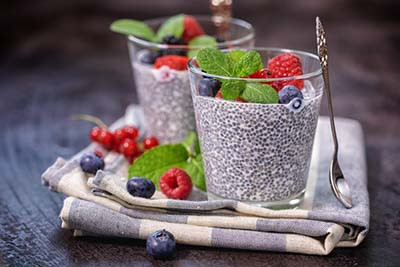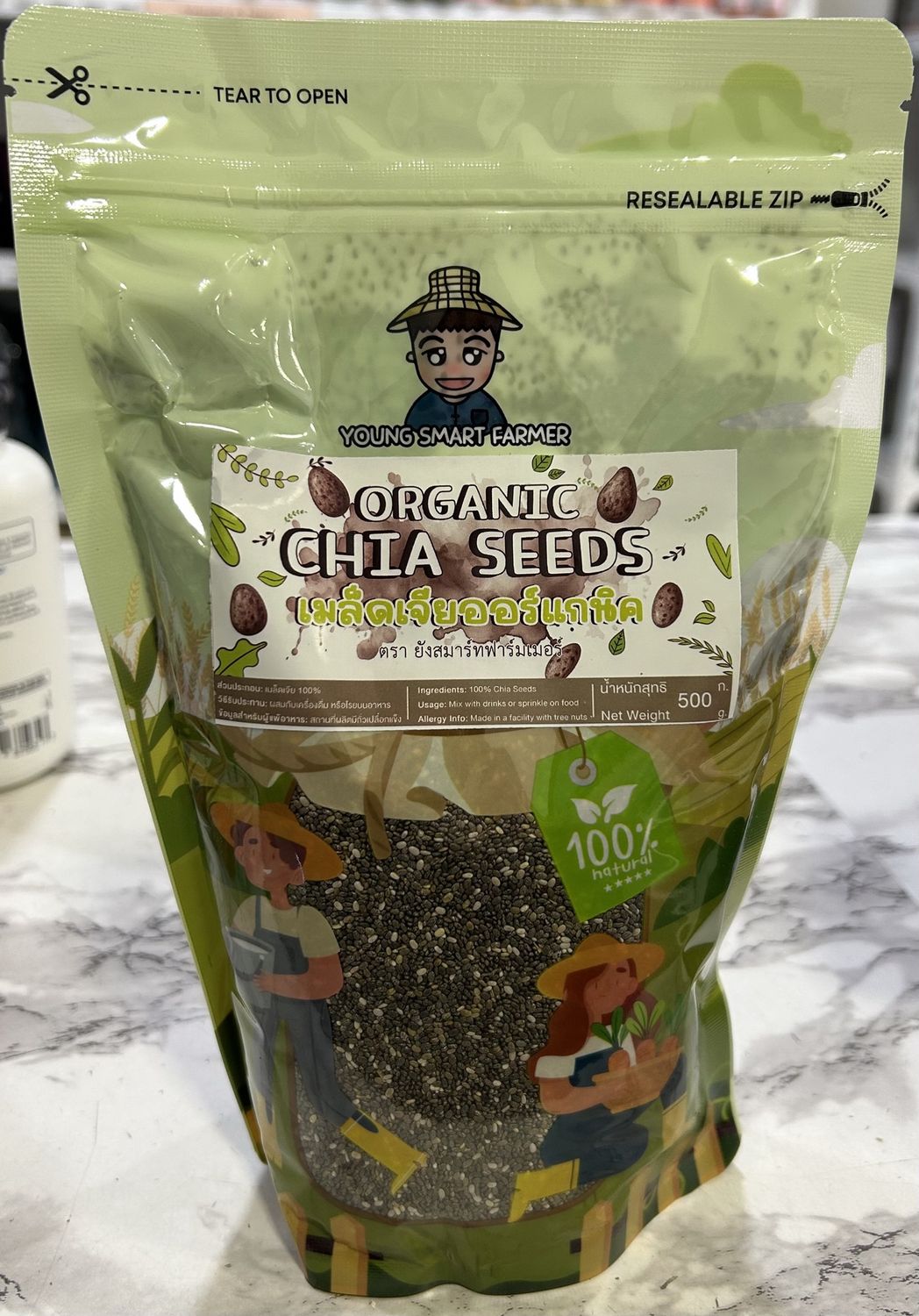Organic Chia Seeds - 500g
Health benefits of chia seeds
Chia seeds are packed with nutrients that may support numerous health benefits. Among them:
- reducing blood pressure
- lowering cholesterol levels
- supporting digestive health
- aiding in weight management
- reducing inflammation
- helping to control diabetes
- protecting against chronic disease
- improving anxiety and depression.
When chia seeds are ingested, they form a gel-like substance in the stomach that can increase your feeling of fullness and decrease your appetite and calorie intake.
Chia seeds: Nutritional heavyweights
Chia seeds contain a variety of nutrients including fiber, protein, omega-3 fatty acids, antioxidants, and various vitamins and minerals like calcium, magnesium, and phosphorus that are beneficial to your health.
Omega-3 fatty acids
Chia seeds are a powerhouse of omega-3 fatty acids. This type of fatty acid is primarily found in fatty fish, nuts, and seeds.
Omega-3 fatty acids play an important role in brain function, heart health, and reducing inflammation in the body. Incorporating omega-3s into the diet promotes overall well-being, benefiting cardiovascular and cognitive functions.
Chia seeds are rich in a type of omega-3 fatty acid known as alpha-linolenic acid (ALA). The body cannot produce ALA its own, so it must be obtained through food. Consuming ALA has been linked to a decreased heart disease risk.
Fiber
Incorporating chia seeds into your diet is also an excellent way to increase your intake of fiber. Just one ounce of chia seeds (two to three tablespoons) provides approximately 9.8 grams of dietary fiber.
Research has shown that adequate fiber intake is associated with a decreased risk of:
- coronary heart disease
- type 2 diabetes
- several types of cancer
- inflammation
- digestive disorders.
On the heart health front, fiber helps lower LDL ("bad") cholesterol and triglyceride levels, and helps increase levels of heart-protective HDL cholesterol.
The fiber in chia seeds can also aid healthy digestion by softening the stool and providing bulk to it. This allows the stool to pass more quickly through the intestines and can help alleviate constipation.
Antioxidants
Chia seeds are packed with antioxidants including tocopherols, phytosterols, carotenoids, and polyphenolic compounds. Antioxidants play a crucial role in protecting the body from damage caused by free radicals, which can build up in the body and lead to cell damage and disease.
Thanks in part to their antioxidant content, chia seeds may help protect against:
- inflammation
- diabetes
- cancer
- heart disease
- Alzheimer's disease.
Protein
Chia seeds are also a valuable source of protein. Chia seeds contain all nine essential amino acids. The protein in chia seeds can help stabilize blood sugar levels and provide a steady source of energy.
How to incorporate chia seeds into your diet
It's very easy to incorporate chia seeds into your diet. You can simply sprinkle a tablespoon or two on foods such as yogurt, cereal, or salads. You can add chia seeds to smoothies or soups, or mix them into pancake batter or another breakfast food. Chia seeds have a mild flavor, so they are not likely to affect the taste of your food.
Another popular way to get chia seeds into your diet is to make a simple chia pudding. When mixed with liquid, chia seeds develop a gelatinous coating, expanding in size and creating a pudding-like consistency.
Chia pudding recipe

- Add 2 tablespoons of chia seeds into 1/2 cup of milk (almond, soy, and dairy all work). Use a mason jar or other container with a lid.
- Close the lid tightly and shake well. Wait 10 minutes, then shake again, making sure there aren't any clumps.
- Refrigerate for at least 15 minutes, though overnight or for least four hours will allow the pudding to thicken better.
Add berries, nuts, cinnamon, and a touch of sweetener.

